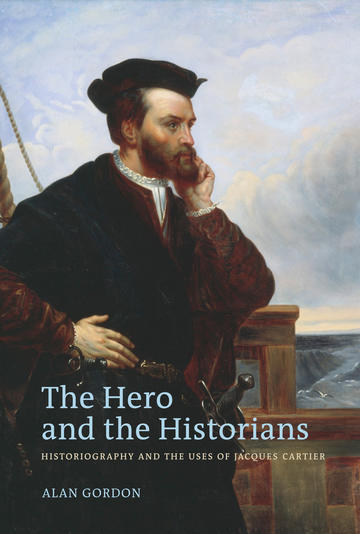About BC Books Online
BC Books Online was created for anyone interested in BC-published books, and with librarians especially in mind. We'd like to make it easy for library staff to learn about books from BC publishers - both new releases and backlist titles - so you can inform your patrons and keep your collections up to date.
Our site features print books and ebooks - both new releases and backlist titles - all of which are available to order through regular trade channels. Browse our subject categories to find books of interest or create and export lists by category to cross-reference with your library's current collection.
A quick tip: When reviewing the "Browse by Category" listings, please note that these are based on standardized BISAC Subject Codes supplied by the books' publishers. You will find additional selections, grouped by theme or region, in our "BC Reading Lists."
Historians have long engaged in passionate debate about collective memory and national identity. Alan Gordon focuses on one national hero – Jacques Cartier – to explore how notions about the past have been passed from generation to generation in English- and French-speaking Canada and used to present particular ideas about the world. Nineteenth-century celebrations of Cartier reflected a new understanding of history that accompanied the arrival of modernity in North America. This sensibility, in turn, influenced the political and cultural currents of nation building in Canada. Cartier may have been a point of contact between English and French Canada, but the nature of that contact, as Gordon shows, had profound limitations.
Alan Gordon is an associate professor in the Department of History, University of Guelph.
- Short-listed, Canada Prize in the Social Sciences, Canadian Federation for the Humanities and Social Sciences
L’analyse des sources visuelles concernant les sports et la culture associative de Montréal que présente Poulter ouvre une nouvelle perspective sur le rôle identitaire des élites anglo-montréalaises dans la seconde moitié du XIXe siècle ... Son analyse détaillée et équilibrée intègre avec succès des sources visuelles et textuelles. Le sujet est développé de manière logique et claire, et l’auteur fait montre de rigueur. Il s’agit là d’une importante contribution à l’historiographie concernant le discours identitaire au Canada, qui élargit ce champ d’étude au-delà de la division souvent trop rigide posée entre le Québec et le reste du pays.
This book will greatly interest those who wish to better understand the historiographic traditions of nineteenth and twentieth century Canada, particularly Quebec.
Gordon has succeeded in offering a very astute and nuanced empirical study that situates history writing in its larger social and political contexts.



